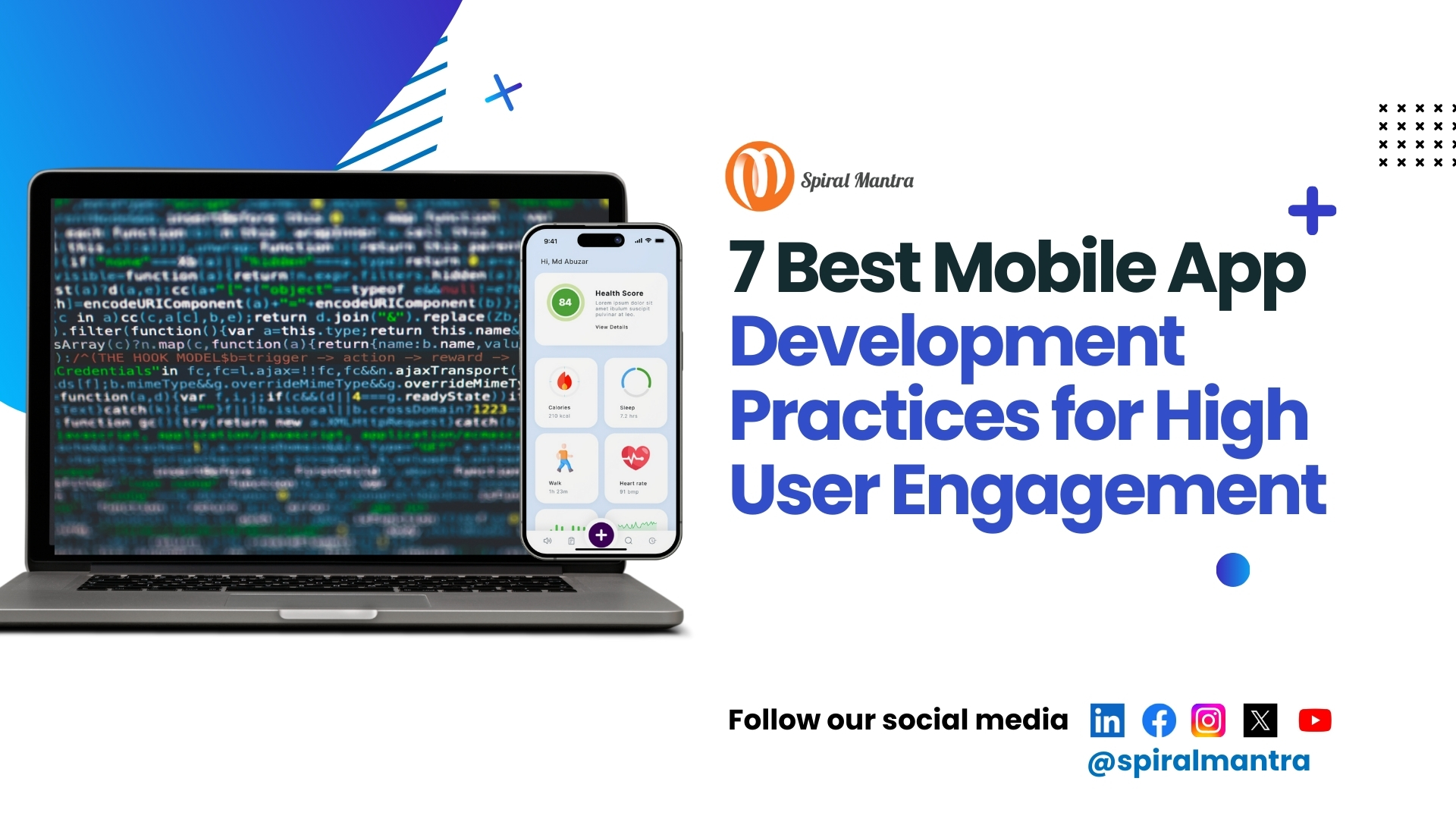
With the rise of artificial intelligence, the mobile app development industry has become a booming success, as businesses aim to integrate AI and machine learning into their applications. According to Statista, the mobile app industry is expected to reach $935.2 billion in revenue by 2023, creating vast opportunities for startups and SMEs to reach new potential markets in 2024.
These compelling statistics motivate companies to develop custom apps by collaborating with skilled experts, including virtual teams. If you’re looking for a trusted partner, Spiral Mantra offers expertise in mobile app development, AI engineering, and machine learning, utilizing the benefits of virtual team-building to deliver results on time.
For those new to the field, it’s essential to understand that mobile app development is a comprehensive process, involving multiple steps. However, many hurdles can cause your app to fail. Below, we’ve outlined some reasons why mobile apps fail and how to avoid these issues.
Common Causes of Mobile App Failure:
- Lack of Unique Value Proposition
One of the main reasons startups fail is the lack of an original idea, often resulting in copying competitors. Without offering a unique value proposition, it’s difficult to stand out in a crowded market. Offering something distinct is key to long-term success. - Poor User Experience
According to Intechnic’s latest survey, 80% of mobile users abandon an app at the sign-in screen due to poor navigation. Frequent problems include:- Slow page loading times
- Confusing menus and navigation
- Limited accessibility and overly complex registration processes
- Failure to Solve User Problems
Apps that don’t address a real user need often fail. Understanding and addressing user pain points is critical to gaining and maintaining user engagement. - Lack of a Monetization Strategy
Without a clear monetization strategy, even the most engaging apps can struggle. Consider models like in-app purchases, subscriptions, or ad-supported content. These strategies can increase revenue while maintaining user satisfaction.
How to Develop a Successful Mobile App:
As more companies enter the mobile app development market, having a well-defined plan is crucial. Here are some best practices for building a high-performing mobile app:
1. Conduct Comprehensive Research
Before you begin development, it’s essential to understand your target audience. Conduct thorough market research to identify the needs of your potential users. This research will help you make informed decisions about features, design, and platform choice, allowing you to compete effectively.
2. Select the Right Platform
Choosing the appropriate platform is critical, whether it’s Android, iOS, or Cross-Platform. Each has its pros and cons, so understanding the nuances of native app development, cross-platform development, and web apps will help you make the best choice for your project.
3. Prioritize Design
Great design is a must for any mobile app. Tools like Flutter and React Native allow developers to use a single codebase for both iOS and Android, speeding up development without compromising quality. A well-thought-out design enhances user experience and boosts engagement.
4. Test for Functionality
Regular testing throughout the development process ensures the app works as intended. A single test isn’t enough—conduct multiple tests to identify and fix bugs before launching. This practice helps ensure a smooth user experience post-launch.
5. Focus on Security
App security is paramount. Protecting user data and preventing breaches is essential for building trust with your audience. Conduct regular security checks to address vulnerabilities and ensure a safe app environment.
6. Develop a Strong Core
Your app’s core functionality must be robust and adaptable to future changes. Focus on building a solid foundation that allows for scalability and modifications as user needs evolve. This will help maintain user engagement and satisfaction over time.
7. Gather Constructive Feedback
Even if your app seems perfect, it’s important to gather feedback from beta testers. This feedback provides valuable insights into areas for improvement and helps fine-tune your app before it goes live. Analytics can further help you understand user behavior and optimize accordingly.
Facing Challenges in Finding the Right App Developer?
Choosing the right mobile app development company can make or break your project. Spiral Mantra, a leading mobile app development company in the USA, offers remote development services to ensure your app is built by top professionals, whether you’re looking for iOS app development, Android app development, or cross-platform mobile development. Let us help you bring your ideal app to life and reach billions of potential users.
For startups or businesses looking for application development services, native app development, or flutter app development, these best practices can help set the foundation for a successful mobile app. Spiral Mantra’s expertise in mobile app development services ensures a seamless process from idea to execution, helping you stand out in the competitive market.
Whether you need healthcare app development services, e-commerce app development, or want to explore cross-platform app development, following these steps will guide you in the right direction. Spiral Mantra’s dedicated team is here to support you through the entire app development lifecycle.



